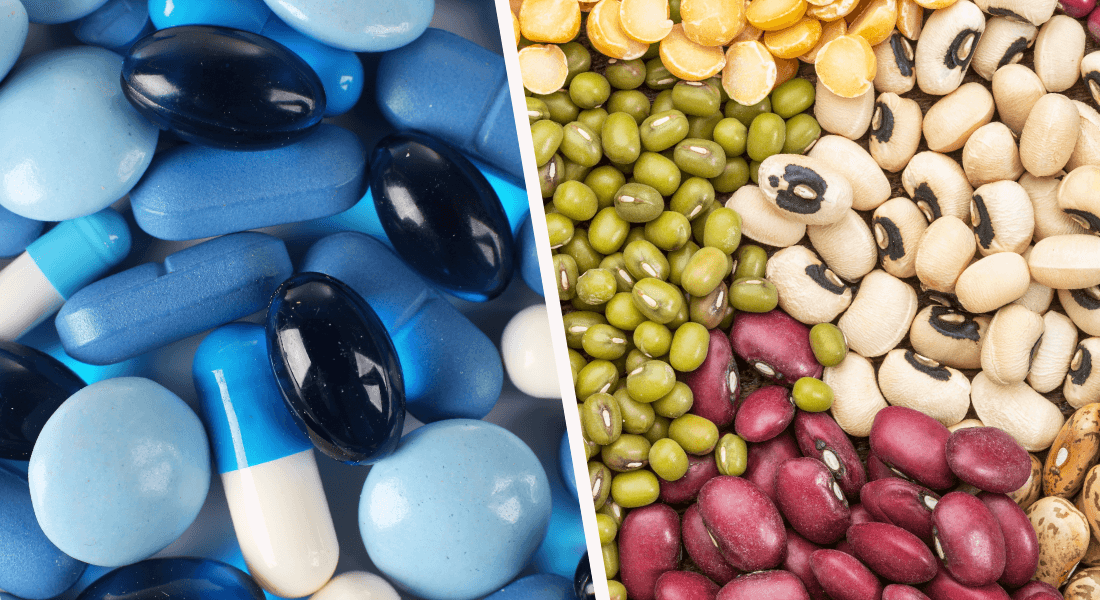New research lighthouse to focus on developing better food and medicine
Researchers at the University of Copenhagen and Aarhus University receive DKK 39.4 million to establish a new research center focusing on the potential of neutron-based methods to revolutionize pharmaceutical and food sciences. These methods offer unique opportunities for studies of complex soft materials, which may, for example, open the door to better plant-based food and improved therapeutics.

Everyday essentials like food, drug products, and cosmetics frequently involve complex formulations based on lipids, proteins and polymers. By studying how small structures from such components form and behave, scientists can address big challenges, like creating better plant-based foods, improving how our bodies absorb drugs, or designing advanced delivery systems for targeted treatments.
This is the purpose of the ESS Lighthouse: Colloids and Interfaces in Food and Pharma (CaIFF), which is made possible through a prestigious grant of DKK 39.4 million from the Danish Agency for Higher Education and Science as part of the Ministry of Higher Education and Science’s ESS strategy, aiming to make use of the European Spallation Source (ESS) resource.
“The purpose of CaIFF is to perform cutting-edge research of complex structures within colloid and interface science, focusing on out-of-equilibrium multiphase systems,” says Martin Malmsten, Professor at the Department of Pharmacy at the University of Copenhagen and Center Director. He adds:
“Special tools based on neutron- and X-ray scattering are crucial for unlocking this knowledge. ESS provides cutting-edge technology to study how these tiny structures change during production, storage, or even inside our bodies. This work bridges science and industry, ensuring innovations to directly benefit food and pharmaceutical development.”
Bridging academia and industrial research
CaIFF will make use of the facilities of ESS, aiming to become a global hub for cutting-edge research in the field of out-of-equilibrium multiphase systems.
“The work will lay the foundation for controlled application of these systems in pharmaceutical and food products. In collaboration with ESS, CaIFF serves as a gateway for researchers across Denmark, providing support for those conducting their first neutron-based experiments. This initiative bridges academia and industrial research laboratories, driving innovation across sectors,” says Jacob Kirkensgaard, Associate Professor at the Department of Food Science at the University of Copenhagen and principal investigator.
The center unites 16 research groups from the University of Copenhagen and Aarhus University, with additional collaborations involving the Danish Technical University and the University of Southern Denmark.
Together, these groups will work to harness the opportunities provided by advanced neutron- and synchrotron-based methodologies such as small-angle scattering, reflectometry, and tomography, paired with theoretical modeling and data analysis.
“Through long-term engagement and collaboration with ESS beyond what is possible with traditional research projects, we hope to be able to contribute to pushing experimental methodologies and analysis tools forward,” says Jan Skov Pedersen, Professor at the Department of Chemistry at Aarhus University and principal investigator.
Interdisciplinary work
Beyond experimental work, CaIFF plays a role in developing advanced modeling and simulation tools in partnership with the ESS Data Management and Software Center. The center also recruits six PhD students, offering an interdisciplinary, international training program with a focus on neutron-based methodologies and their applications in pharmaceuticals and food sciences.
“This area is characterized by closeness between basic research and industrial application, as well as by technical solutions frequently being transferrable between industrial areas. For example, controlling small structures formed in mixtures of proteins and lipids may lead to new ways to control texture and stability of plant-based foods, as well as to deliver protein- and peptide-based therapeutics,” says Martin Malmsten. He adds:
“We are looking forward to starting the collaborations and the work in CaIFF, hoping to make a difference also for a broader audience, including school children and youth, to inspire the next generation of scientists.”
Contact
Communications Consultant Sascha Kael Rasmussen
sascha.kael.rasmussen@sund.ku.dk
+45 93 56 51 68
